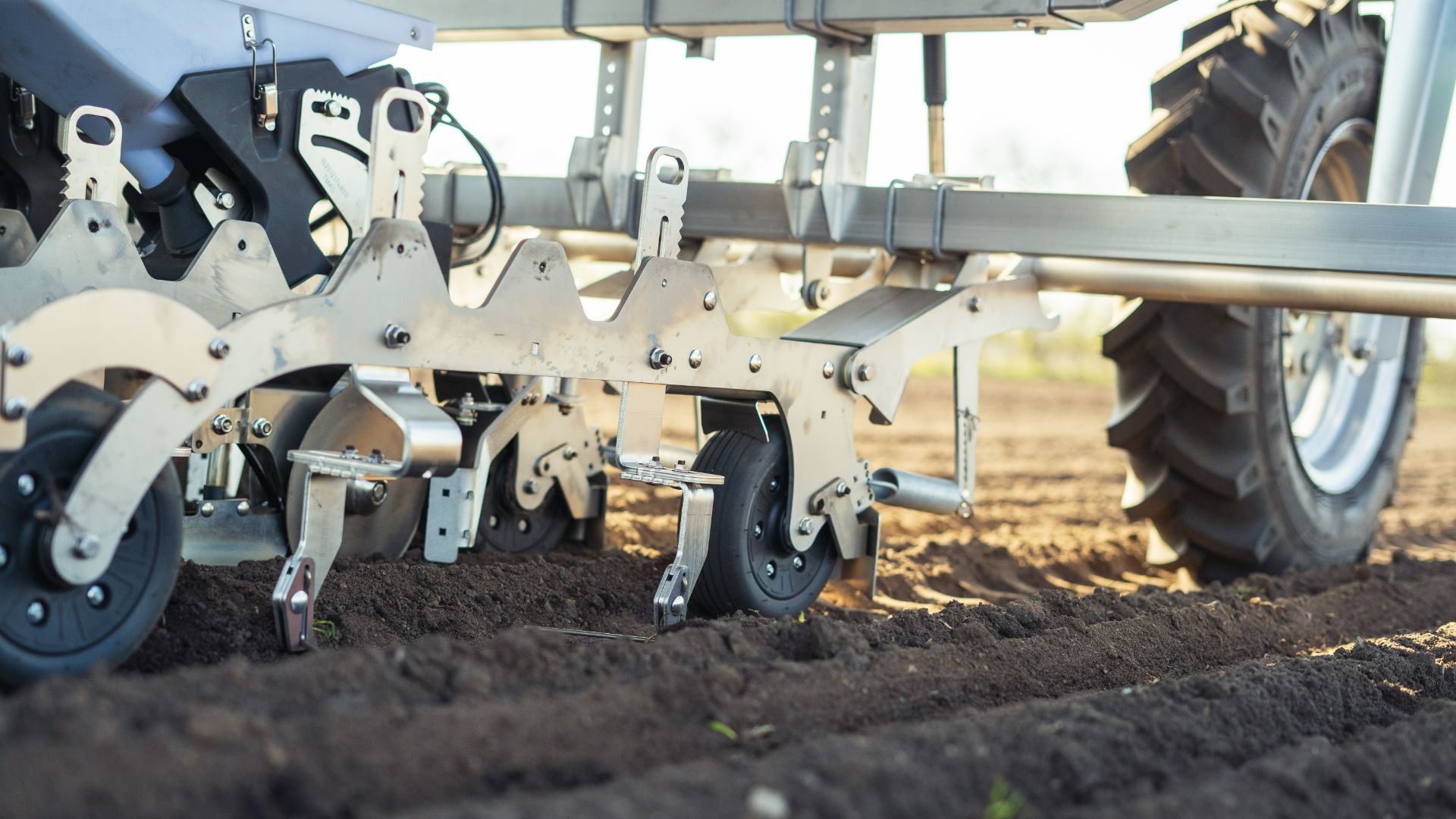In the modern age of agriculture, where technology is advancing at a rapid pace, it may seem counterintuitive to advocate for farming robots with minimal technology. At FarmDroid we also love new technology and constantly seek out new and smarter ways to do things.
However, embracing simplicity in farming robotics can offer numerous benefits that align with the principles of sustainability, efficiency, and a people-first approach. In this post, we will explore why farming robots with minimal technology can be a game-changer for farmers and the agricultural industry as a whole.
- Enhanced reliability and ease of use:
Farming robots that rely on minimal technology components are often simpler to operate and maintain. With fewer complex systems and components, there is a reduced risk of technical failures and malfunctions. This leads to increased reliability and minimizes downtime, allowing farmers to focus on their core responsibilities without worrying about intricate technological issues. Moreover, simplified robots are generally more user-friendly, requiring less training for farmers to operate them effectively. - Cost-Effectiveness and Affordability:
Investing in farming robots without excessive technological features can be more financially viable for farmers, especially those with limited budgets. By limiting the use of expensive next-gen technology in a FarmDroid, we can make them more accessible for farmers to adopt farming robots. Additionally, the reduced complexity of these robots translates into lower maintenance and repair costs over time. By embracing simplicity, we have seen that farmers can adopt robotic technology without incurring substantial financial burdens. - Integration with Traditional Farming Practices:
Farming robots with minimal technology are designed to complement traditional farming practices seamlessly. They are built to perform specific tasks efficiently and effectively, without disrupting the existing workflow or requiring major infrastructure modifications. This integration allows farmers to leverage the benefits of automation while preserving their knowledge and expertise in traditional farming methods. It also ensures a smooth transition for farmers who may be hesitant to fully embrace advanced technologies. For example is FarmDroid FD20 using the well-known RTK-GPS that has proved to be excellent for precision- and autonomous farming in both farming equipment and robots. - Environmental Sustainability:
Simplicity in farming robotics aligns with the principles of environmental sustainability. Minimal technology robots often have reduced power requirements, leading to lower energy consumption. While the FarmDroid FD20 is equipped with batteries, it is also being powered and charged by solar panels. And designed to minimize the carbon footprint by using eco-friendly materials and adopting energy-efficient practices. By opting for robots with minimal technology, farmers can contribute to the reduction of greenhouse gas emissions and promote a more sustainable agricultural system. - Localized Support and Community Engagement:
Farming communities thrive on mutual support and collaboration. With farming robots that rely on minimal technology, there is a greater opportunity for localized support and community engagement. Farmers can easily understand and troubleshoot issues with these robots, fostering a sense of independence and self-reliance. We strive to make the FarmDroid FD20 system accessible and train our distributors and provide knowledge for our users in how to make the best of their robot.

While advanced technologies have their place in agriculture, there is a strong case for embracing simplicity in farming robotics. Farming robots with less technological “fluff” offer enhanced reliability, ease of use, cost-effectiveness, seamless integration with traditional farming practices, and environmental sustainability. By investing in farming robots with tried and tested technology, farmers can achieve their goals of increased productivity, reduced labour, and a more resilient and sustainable agricultural system.
